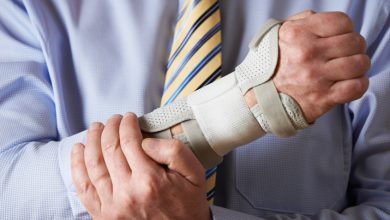personal injury
What are 10 tips on how to maximize compensation in your personal injury case?
As soon as you choose to file a personal injury claim, you need to do whatever you can to optimize your potential payment. An essential part of creating a complete recovery is ensuring that you have sufficient reimbursement to do so.
Everything you do after your injury matters, and there are different things you can do to get the most out of your claim. With an understanding of what aspects of your injury case are in your hands can help you to get the maximum amount possible. Here are ten methods to maximize compensation on your personal injury case.
1. Preserve Evidence
The jury will decide your case by taking a look at the evidence. Even the other party will decide whether to offer you a reasonable settlement depending on the strength of your case.
You should take pictures of the collision scene and your immediate accidents if you are ready to. It’s important to attempt and collect names and contact information for witnesses. When there’s a police report, you may wish to obtain a copy as soon as possible.
2. Get Medical Treatment
To do that you want an accurate image of your damages. You’ll need doctors and other healthcare professionals to document your injuries and formulate a treatment plan.
You should have medical treatment, even when you’re unsure about the extent of your injuries.
3. Value your claim fully
Don’t assume that you are confined to any one kind of damages. There are numerous unique kinds of damages you may suffer due to your injury. You may not even know about all the sorts of accidents and losses that you have.
You can claim compensation for loss of frequent use of body functions and even psychological damages. These are in addition to regaining your out-of-pocket losses. An experienced Nevada personal injury lawyer can check with you to assess these types of damages independently.
4. Don’t be to eager
At times, accepting the first offer you get can keep you from maximizing your reimbursement.
To find the best recovery on your case, you must let the other hand believe that you are prepared to go the distance. It is important to work with a lawyer for a professional opinion about whether to accept or decline a settlement offer.
5. Explain why the offer is inadequate
Part of getting maximum reimbursement means convincing the other side you’ve got a strong case. When you get an inadequate settlement offer, you can respond by describing to the other hand why it is unacceptable, with documentation that strengthens your assertions.
This settlement rejection may show them that you are dedicated to getting the compensation you deserve and you have a strong case under Nevada law. A lawyer can help you manage all the considerations associated with rejecting a settlement offer, and providing documentation on why it is deemed inadequate.
6. Do not Forget Future Damages
You may not fully recover from the injuries before your case goes to trial. It’s imperative to make concerns about future restoration when negotiating a settlement sum.
It is possible to include future damages as part of your claim. In some cases, future damages may even comprise most your losses. You will need to work with caregivers to document these losses and include them on your claim.
7. Build Your Case
Doing the job to build your case methodically can optimize your damages even if your case goes to trial. You might have to be observed by various medical professionals, along with your lawyer may work with other expert witnesses to create the strength of your case.
Possessing a strong case ready for trial can pressure the responsible party to offer you a reasonable settlement. If the other side senses that you are not doing the job to build your case, they will be prone to lower your settlement offer. If they know you are prepared to go to trial and win, they will tend to pay you a decent amount.
8. Do Not Wait to File Your Case
Following an injury occurs, you have time constraints to bring your case. It is important to bring your case as soon as possible as you don’t want to risk time exercising. After the statute of limitations expires, you may be unable to recuperate in any respect. Additionally, filing your case enables you to start to collect evidence formally.
This can be a vital component of being able to maintain the evidence required to build your case. Additionally, it lets the other hand know that you are serious about getting a reasonable recovery and moving the case through the courts as soon as possible.
9. Stay off Socials
Most individuals know the phrase which states that whatever you say can and will be held against you in a court of law. Unfortunately, not all people today realize that this term also applies to everything you state on social networking.
If you are claiming catastrophic injuries, but your FB page tells a different story, it can mess up your case. The other hand is watching, and your very best bet is to keep silent and allow your lawyer do the talking. In addition, it is a good rule of thumb to not speak about any part of your injury case with anyone, or anywhere until a settlement is reached.
10. Make a Fantastic Impression
The other side will make a settlement offer based on what they believe a jury might do at trial. It is very important to put your best foot forward.
This little effort can nudge the other hand to offer you a reasonable settlement.

